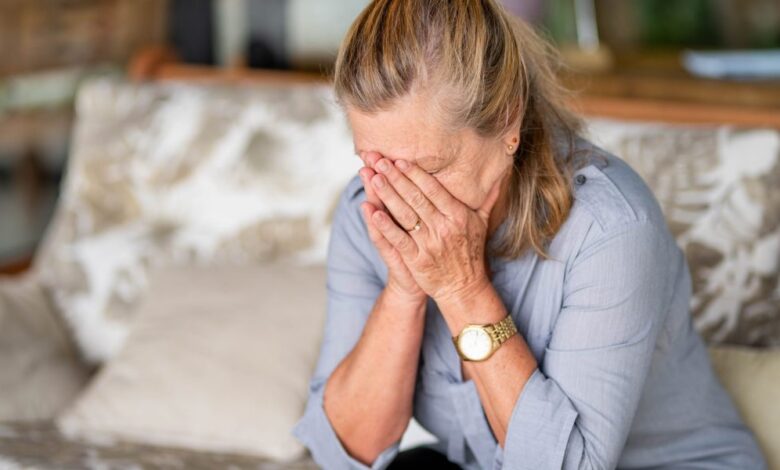Severe COVID: Worse Mental Illness Rates Among Unvaccinated People

Now, scientists in the UK have discovered a new piece of the puzzle: COVID vaccines may reduce the negative impact of the virus on mental health. The team, which included researchers from universities Bristol, Cambridge, Oxford UniversityAnd Swanseaas University College Londonfound higher rates of mental illness in unvaccinated people, up to a year after severe COVID infection. Their findings were published Wednesday in JAMA Psychiatry.
“Our findings have important implications for public health And mental health provide services, as serious mental illness is associated with more intensive health care needs and long-term health and other adverse effects,” Dr. Venexia Walker“Our results highlight the importance of COVID-19 vaccination in the general population and in particular in people with mental illness, who may be at increased risk of both SARS-CoV-2 infection and death,” said senior research fellow in epidemiology at Bristol Medical School and one of the study’s lead authors, in a press release. Adverse outcomes after COVID-19“ .
The observational study assessed the medical records of more than 18.6 million adults aged 18 to 110 (50% female; median age: 49) registered with a GP in England. In this first cohort, which focused on the early days of the pandemic before vaccines were available, about 5% of patients were diagnosed with COVID. The other two groups represent the vaccination period from June to December 2021:
- Vaccinated: 14 million people
- Female: 52%
- Average age: 53
- COVID Diagnosis: 6%
- Unvaccinated: 3.2 million people
- Female: 42%
- Average age: 35
- COVID Diagnosis: 5%
Within each group, the researchers compared the rates of the following mental health conditions before and after being diagnosed with COVID:
Compared to pre- or non-COVID, the incidence of most of these conditions increased one to four weeks after a COVID diagnosis. This trend was mainly for severe infections requiring hospitalization, and in unvaccinated people, the incidence remained high for a year.
Rates of mental illness increased slightly in COVID patients with milder infections. For example, rates of depression spiked 16-fold in hospitalized patients but only 1.2-fold in non-hospitalized patients. While no vaccine is 100% effective, COVID vaccinations are aimed at preventing severe illness and death. The researchers noted that the vaccinated group showed little change in rates of depression before/after non-hospitalized infections.
The association between COVID and mental illness did not vary significantly across racial and ethnic groups. However, it did vary by age and biological sex. For example, this association was stronger in men and older age group.
Despite the large sample size, the study has limitations. The million participants came from a single country and were largely white. The researchers also emphasized that they only analyzed confirmed cases recorded in electronic health records, meaning individuals who tested positive for COVID but did not seek medical care were not included in the study. Additionally, the researchers cannot rule out the possibility that viruses other than SARS-CoV-2 does not contribute to the mental illnesses studied.
“We have identified a link between COVID-19 and cardiovascular diseasediabetes and now mental illness,” Jonathan Sterne, PhD“We are continuing to explore the consequences of COVID-19 with ongoing projects looking at the link between COVID-19 and the kidney, autoimmunity and neurodegenerative condition“ .
When will a new COVID vaccine be available?
Updated, COVID 2024–25 vaccine likely to be available in early fall. Vaccine developed by Pfizer Company, Modernand Novavax will launch “later this year,” Centers for Disease Control and Prevention (CDC) was announced in June. Last year’s version came out in mid-September.
When new vaccines become available, CDC recommends Everyone 6 months of age and older gets one dose to protect themselves against Latest Omicron Variants. People who have compromised immune system And people 65 years of age and older may be eligible for additional doses.
“Our top recommendation to protect you and your loved ones from respiratory illness is to get vaccinated,” CDC Director Dr. Mandy Cohen said in a June press release. “Plan now to get you and your family both a flu vaccine and the latest COVID vaccine this fall, ahead of respiratory virus season.”
If you need immediate mental health support, contact 988 Suicide and Crisis Hotline.
For more information about COVID-19 and mental health:
Sign up for Well Adjusted, our newsletter full of simple strategies for working smarter and living better, from the Fortune Well team. Register free today




